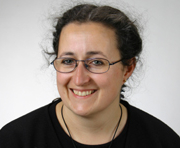- Level Professional
- المدة 15 ساعات hours
- الطبع بواسطة University of Amsterdam
-
Offered by

عن
This course is developed to improve the effectiveness of laboratory classes in higher education. It aims to support teachers to improve their teaching skills for active learning in university science laboratory courses. It will show you how laboratory sessions can differ with respect to their aim and expected learning outcomes, how to engage students for learning and how to cope with their different levels of pre-knowledge and experience and probe their understanding. Last but not least it will show how you could assess students in laboratory courses. This course is developed by ECTN (European Chemistry Thematic Network), Working group Lecturing Qualifications and Innovative Teaching Methods.الوحدات
About this course
3
Readings
- About this Course
- About Module 1
- Reflection on your teaching
Introduction & Establishing your personal learning goal for this course
1
Discussions
- Personal profile - Who I am & what do I want to learn from this course?
1
Videos
- Introduction Module 1
2
Readings
- Poll: The role of laboratory work in the science curriculum
- Subtitles introductory video
Why do we have laboratory classes?
1
Discussions
- Laboratory classes? - why should we have them?
1
Readings
- The role of laboratory work in university chemistry
Types of Laboratory Instruction Styles
1
Discussions
- New and different types of lab session
1
Readings
- A Review of Laboratory Instruction Styles
Strategies to increase student engagement during laboratory sessions
1
Peer Review
- Context-based learning
1
Discussions
- How can we increase student engagement in laboratory work? - exchange of good practice examples
1
Readings
- One possible way to engage students is context-based learning and role play
Introduction and welcome to Module 2
1
Videos
- Welcome to Module 2
2
Readings
- About Module 2
- Transcript Video: Welcome to Module 2
Important qualities of a laboratory instructor
1
Discussions
- Key competencies for effective laboratory teaching
2
Readings
- Your best laboratory Instructor
- What defines an effective laboratory instructor?
Diversity in the classroom
1
Discussions
- Assessing student background
1
Readings
- What Do Students Already Know?
Student preparation for class
1
Discussions
- Pre-laboratory activities
1
Readings
- Pre-laboratory activities
Laboratory teacher preparation for class
1
Discussions
- Getting ready to teach a lab class
1
Readings
- Laboratory teaching preparation sheet
Application to your own lab class
1
Peer Review
- Laboratory Teaching - Tips and Strategies
Introduction and Welcome to Module 3
1
Videos
- Learning theories in practice
2
Readings
- About module 3
- Transcript for the Introduction to Module 3 video
Learning outcomes in the laboratory
1
Assignment
- Identifying learning outcomes in the laboratory
1
Readings
- Formulating clear learning outcomes
Learning ideas that apply in the laboratory - the levels of chemistry representation
1
Assignment
- Considering how Johnstone's Triangle applies in your context
1
Videos
- Johnstone's triangle summary
1
Readings
- Johnstone's triangle
Learning ideas that apply to the laboratory - threshold concepts
1
Discussions
- Threshold concepts in chemistry and other science subjects
1
Readings
- Threshold concepts - an explanation
Peer Review Assignment for Module 3 - Linking theory and practice in the laboratory
1
Peer Review
- Linking theory & laboratory practice
Introduction and welcome to Module 4
1
Videos
- Welcome to Module 4
2
Readings
- About module 4
- Transcript Video: Welcome to Module 4
The information processing model
2
Discussions
- Giving instructions in lab classes
- Information overload
2
Videos
- Practical work instructions (Example 1)
- Practical work instructions (Example 2)
1
Readings
- A model of how we learn
Questioning skills
3
Discussions
- Safety revision through questioning
- Getting ready to teach a lab class (II)
- Questions that promote learning - Practice in your lab (Optional activity)
2
Readings
- Questioning skills
- Questioning stems
Peer Review Assignment for Module 4 - Giving instructions and questioning skills
1
Peer Review
- Giving instructions and asking questions
Introduction and Welcome to Module 5
1
Assignment
- Short activity on aligning assessment with learning outcomes related to lab skills
1
Videos
- Introduction to Module 5
1
Readings
- About module 5
Designing a rubric
1
Assignment
- Take home messages from the Designing Scoring Rubrics video
1
Videos
- How to develop a rubric
1
Readings
- Case study : Rubrics for project based research
Teaching with rubrics
1
Peer Review
- Designing a rubric
1
Discussions
- Teaching with rubrics
1
Readings
- Teaching with Rubrics
Rubrics in a complete programme (optional part)
1
Discussions
- The rubric bank (optional)
1
Readings
- The rubric bank
Reflection on your learning process in this course
2
Assignment
- Reflection
- Evaluation of the course
1
Discussions
- Share your plans
1
Readings
- About module 6
Complete the course
1
Readings
- Complete the course
Auto Summary
"Teaching in University Science Laboratories (Developing Best Practice)" is an insightful course designed for educators in the Science & Engineering domain. Created by the European Chemistry Thematic Network (ECTN), this professional-level program offered on Coursera aims to elevate the effectiveness of laboratory classes in higher education. The course emphasizes developing teaching skills that foster active learning in university science labs. Throughout the comprehensive 900-minute duration, participants will explore various aspects of laboratory teaching, including tailoring sessions to specific aims and learning outcomes, engaging students with diverse backgrounds and knowledge levels, and assessing their understanding effectively. With subscription options available for both Starter and Professional tiers, this course is perfect for university faculty and lab instructors seeking to enhance their pedagogical strategies and deliver impactful, engaging lab experiences for their students. Join now to discover innovative teaching methods and best practices in science laboratory education.
Natasa Brouwer

Gunther Fleerackers

Claire McDonnell

Mauro Mocerino

Iwona Maciejowska

